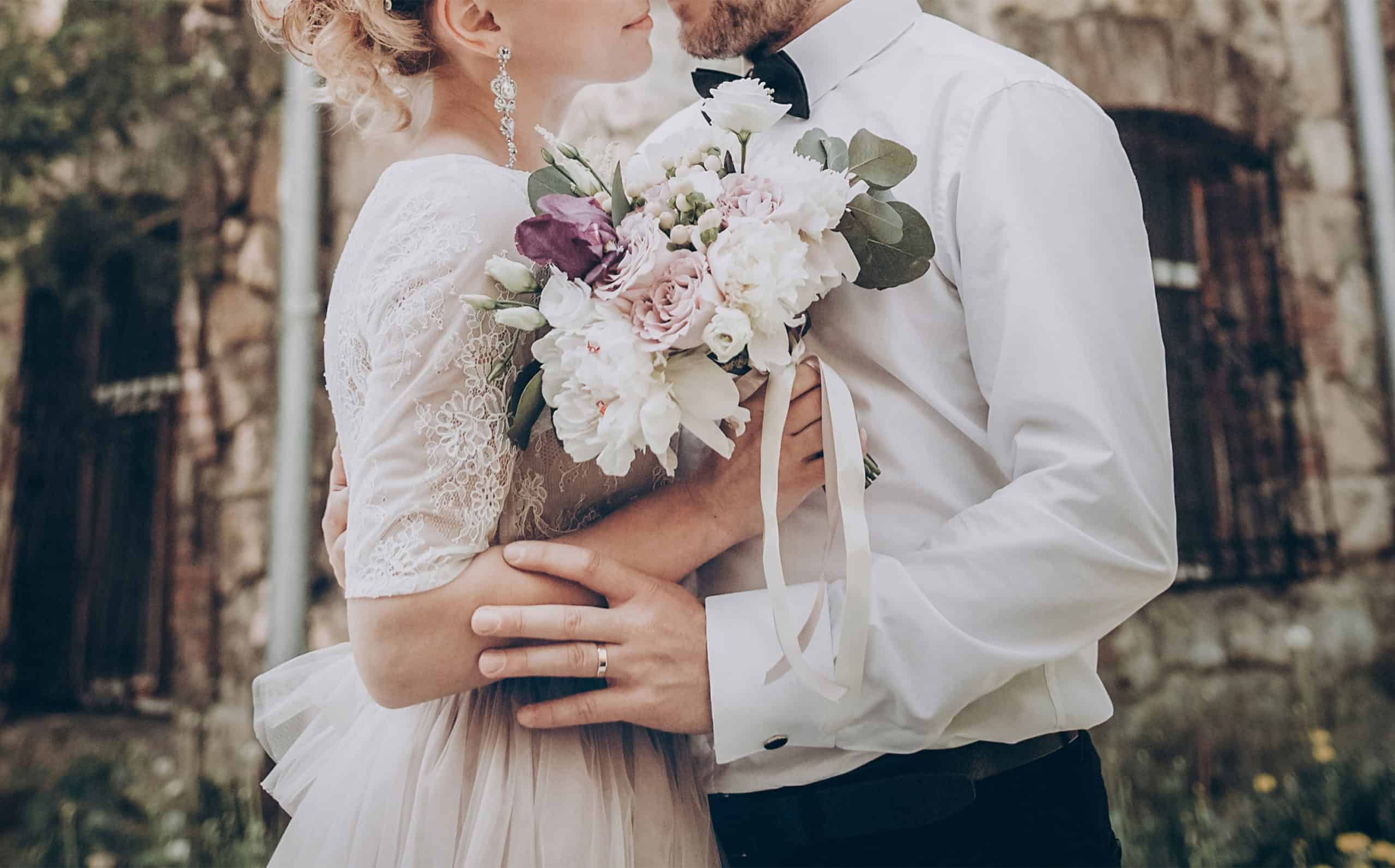I thought the phone call was a practical joke. A production company wanted a generational “expert” to host a television show. In it, four couples of different generations, each struggling in their marriages, would live in a house for a week. They would cook or go places together each day and then discuss the problems they saw in the other marriages. As the expert, I would comment on how the different generations see things. Then at the end, they would share what they had learned about their marriage from the others.
A couple of screen tests proved it wasn’t a joke, but my high school and college-aged kids told me the concept was boring. I, too, did not expect it to get picked up. But it did stir their curiosity to know what each generation expected in marriage, which ones stayed married longer and which had the best relationships.
Learning what the four generations want from marriage can help us understand and strengthen our own relationships. And it can guide us in the help we can provide one another. Within each generation, couples share general characteristics that may not apply to every couple within that generation. So it’s important that we do not stereotype. That said, let’s look at each generation.
Traditionalist marriages
Traditionalists are those born before 1946. They wanted to find a good match and have a strong family. If we asked a traditionalist husband if he was happy when his kids were small, he might shrug and not consider the question. Traditionalists didn’t think about being happy in marriage because happiness would not have made any difference. A husband loved his wife and family, and they needed him.
Couples in this generation were expected to have children, with the wife doing most of the child-rearing and domestic tasks. They married younger and in greater numbers. “Pairs and Spares,” the name some churches of that era had for their young adult Sunday school classes, illustrates that singleness was rare and usually embarrassing. By 1960, 65% of traditionalists ages 18 to 32 were married. (Compared to 26% of millennials in 2013 who were married by those same ages.)
Divorce was not socially acceptable, even though the later traditionalists divorced more and had fewer children.
What traditionalists can learn and teach
Traditionalist marriages teach the other generations that “Am I happy?” is not the main point of marriage; fidelity is. My traditionalist grandmother would say, “Kids these days give up too easily. We had a hard decade.” Though some traditionalists were not happy or fulfilled in their marriages, many grew into love that brought happiness and fulfillment.
Traditionalists are now in the life stage with the highest marital satisfaction. But they can still learn from younger couples about the new rules of negotiation if they run into challenges.
Baby Boomer marriages
Baby boomers were born between 1946 and 1964. They shifted their expectations of marriage. They looked for a soul mate who would provide satisfying sex and accept them for who they were. Much of ’70s music and movies are about understanding and accepting each other. The movie Love Story raised the expectations impossibly high with the famous line, “Love means never having to say you’re sorry.”
Baby boomers talked openly about what traditionalists kept private. The biggest-selling fiction writer of the time, Agatha Christie, described the new emphasis on sex during the boomer era. It was so different from that of her traditionalist generation: “Sex as a word had not been mentioned in Miss Marple’s young days, but there had been plenty of it—not talked about so much—but enjoyed far more than nowadays, or so it seemed to her.”
One byproduct of their focus on self-fulfillment is that baby boomers were nine times more likely than traditionalists to seek counseling. The arguments traditionalists would have behind closed doors, baby boomers did in front of the children, as well as their therapist.
The expectations of baby boomers led to a jump in divorces. During the ’70s, the divorce rate doubled and then began to decline in 1980. Currently baby boomers divorce at twice the rate of traditionalists.
What baby boomers can learn and teach
Baby boomers show the other generations that high expectations can motivate us to seek help, but they can also be a burden. Boomers divorce more and have been less happy than other generations.
While younger couples seek older couples to guide them, high expectations make baby boomers, who have struggled in marriage, reluctant to mentor. That’s unfortunate, because Gen X, millennials and now Gen Z respond to authenticity, not perfection. Boomers need to tell stories about couples who waited to have sex until marriage and never wavered in their commitment. This will help millennials see it is possible. And divorced people can lay out the pitfalls with authenticity: “If I could do it all over again . . .” can be powerful as well.
The changing times can be an encouragement for those boomers contemplating a “gray wave” divorce: Marriage isn’t the norm or expectation it was 30 years ago. Seeing the example of younger couples choosing marriage could encourage older couples who are in a rough patch.
Generation X marriages
Generation X was born between 1965 and 1980. When Generation Xers saw the divorce rate double, it made them more skeptical about marriage. But it also motivated them not to put their children through divorce. Their desire to avoid a breakup, as well as weather the economic ups and downs, caused them to marry and have children later, often cohabitating first.
Gen X was the first generation that saw more women than men graduate from college. Dual careers rather than dual jobs made them the first generation to juggle family and work in the information economy. It also meant a much greater demand for work-life balance. Men still did less childcare and housework than women, but they did far more than boomer men.
Gen Xers brought realism back to the marriage vows. While boomers wanted it all, Gen Xers demonstrated that protecting their marriage required tradeoffs. They redefined success as more than money and houses, and they saw firsthand that the second marriage was not the magic answer when they were disappointed with the first one. They knew marriage was work, and they decided it was better not to marry than to be unhappy. No one called their young adult Sunday school class Pairs and Spares anymore.
What Gen Xers can learn and teach
Because Gen Xers expect marriage to have hard spots, they have made it easier for all generations to ask for help. My wife is typical. If she and I have been arguing off and on about something for a couple of months, she will say, “Let’s call Tim. I know we’ll figure it out, but why take six months for you to realize when he can tell you right now that you are wrong?” (Yes, she really does say that, usually with a smile.)
They tend to be independent and can learn from the other generations to find community, to seek a wider circle of support than their immediate family and friends.
Millennial marriages
Millennials were born between 1981 and 1998. They have a lower divorce rate than baby boomers or Gen Xers and are romantics. Millennials believe in love and marriage (in that order). They marry later, which is one of the reasons millennials have the lowest divorce rate.
Constant reports that marriage may not survive the millennials and Gen Z are inaccurate. While more than a quarter cohabitate, just over half of these millennials want to marry eventually, even among those cohabitating. Though they postpone marriage, they do not postpone sex. Today, the majority in the United States believe marriage is important but not essential for a happy life and for well-balanced children.
That makes the religious young people who wait for sex incomprehensible to their friends—not only because they are virgins, but also because they understandably marry four-and-a-half years earlier than the norm. A young millennial married at 22 explained: “My peers and I are very aware that marriage isn’t an easy fairy tale—we know we have to put the work in every day. We’re also very aware that our marriages ought to display the Gospel, especially now that we’re viewed as an oddity by secular culture for getting married in our early or mid-20s.”
Millennials tend to expect to share parenting duties and trade off on “leaning in.” They are the first generation where almost equal percentages of husbands and wives desire demanding jobs. Significantly more female millennials graduate from universities than males.
What millennials can learn and teach
This was a typical response when I asked millennial couples what they could teach other generations: “Hmm . . . that’s tough. I don’t see millennials giving verbal advice to older couples in the way that an older couple would to a younger couple. I’ve only been married two years, so my ideas might not be worth much, but I’ll throw in a few thoughts.”
This reinforces again that millennials will welcome encouragement and advice, if older couples will help them figure out the challenges of marriage—for a millennial’s generation instead of their own.
My 30-year-old pastor son said that many older members learned from their children’s example. They told him that watching their kids during the COVID-19 pandemic taught them to appreciate the everyday things. Their millennial children are always trying new recipes and most cook meals at home. They roast their own coffee and know about the best cheap restaurants. And they want to spend time together, as a couple and as a family.
Which generation has the best marriages?
If we measure by fewest divorces, traditionalists and millennials have the best marriages. If we measure by the most children, Gen X beats the baby boomers. But that question is as unlikely to succeed as the television show that prompted it. It is more important that people win at their own marriage—that a relationship has the grace to make up for imperfections and the love to overcome the challenges.
Usually that means we win at marriage with the strengths and challenges of our generation. Because most marry someone within or near their own generation, many people tend to think that someone with similar expectations about marriage and family will build a stronger marriage.
Of the questions the show prompted my children to ask, “Which generation has the best marriages?” is the most fun—but so what? “What can each generation learn from the others?” is the question they talked about the most. Smart kids. That question can make better marriages.




















